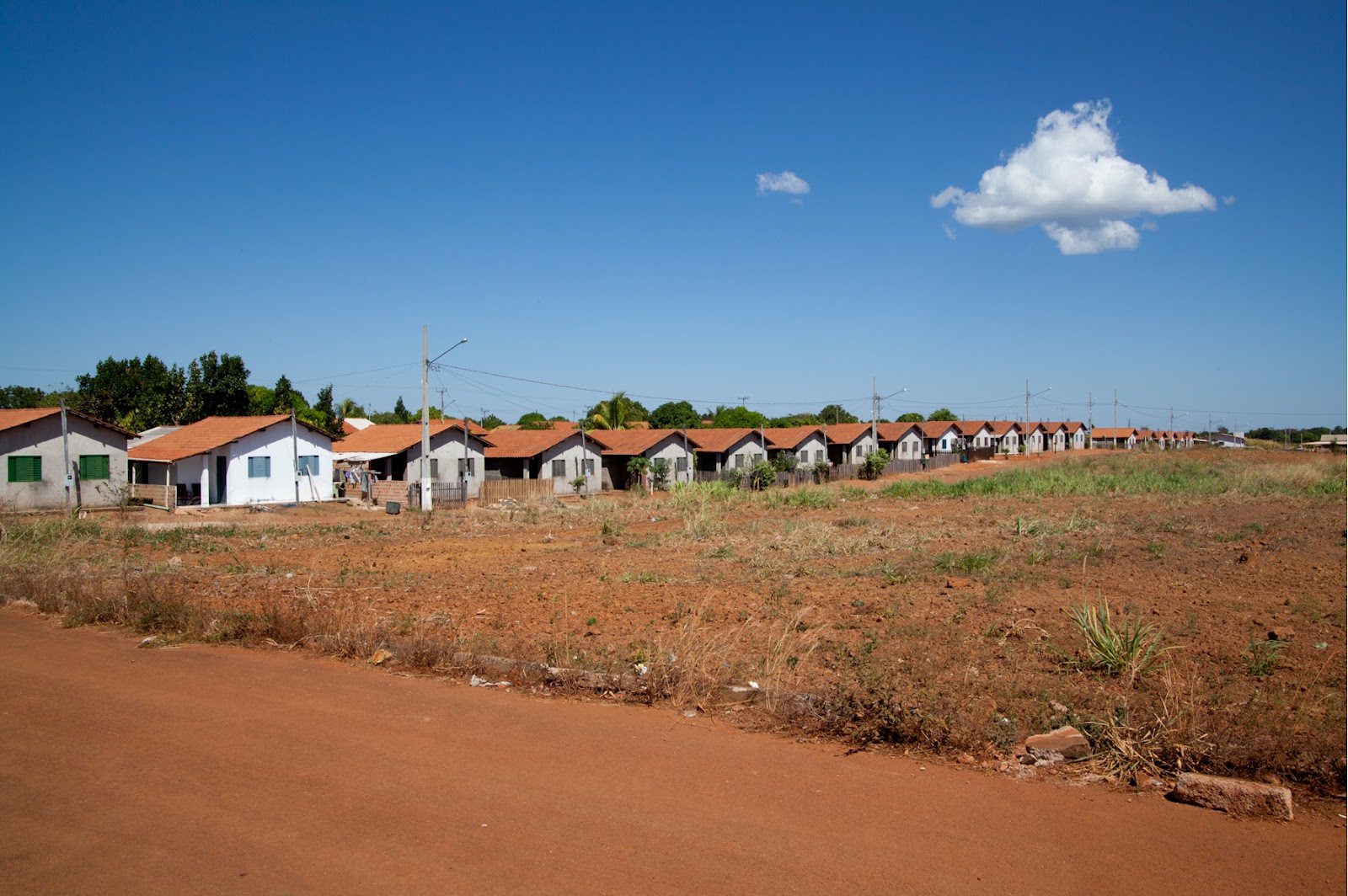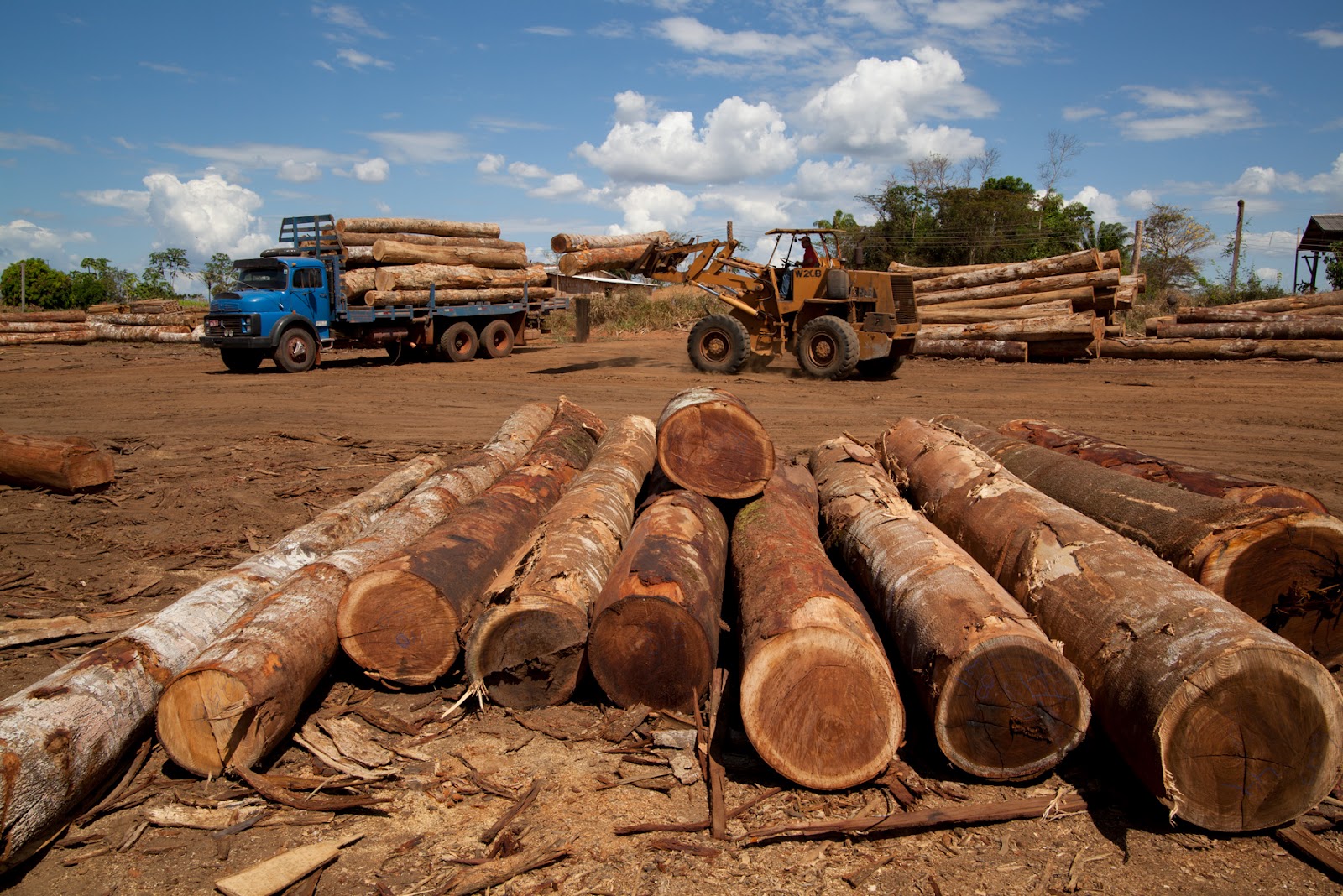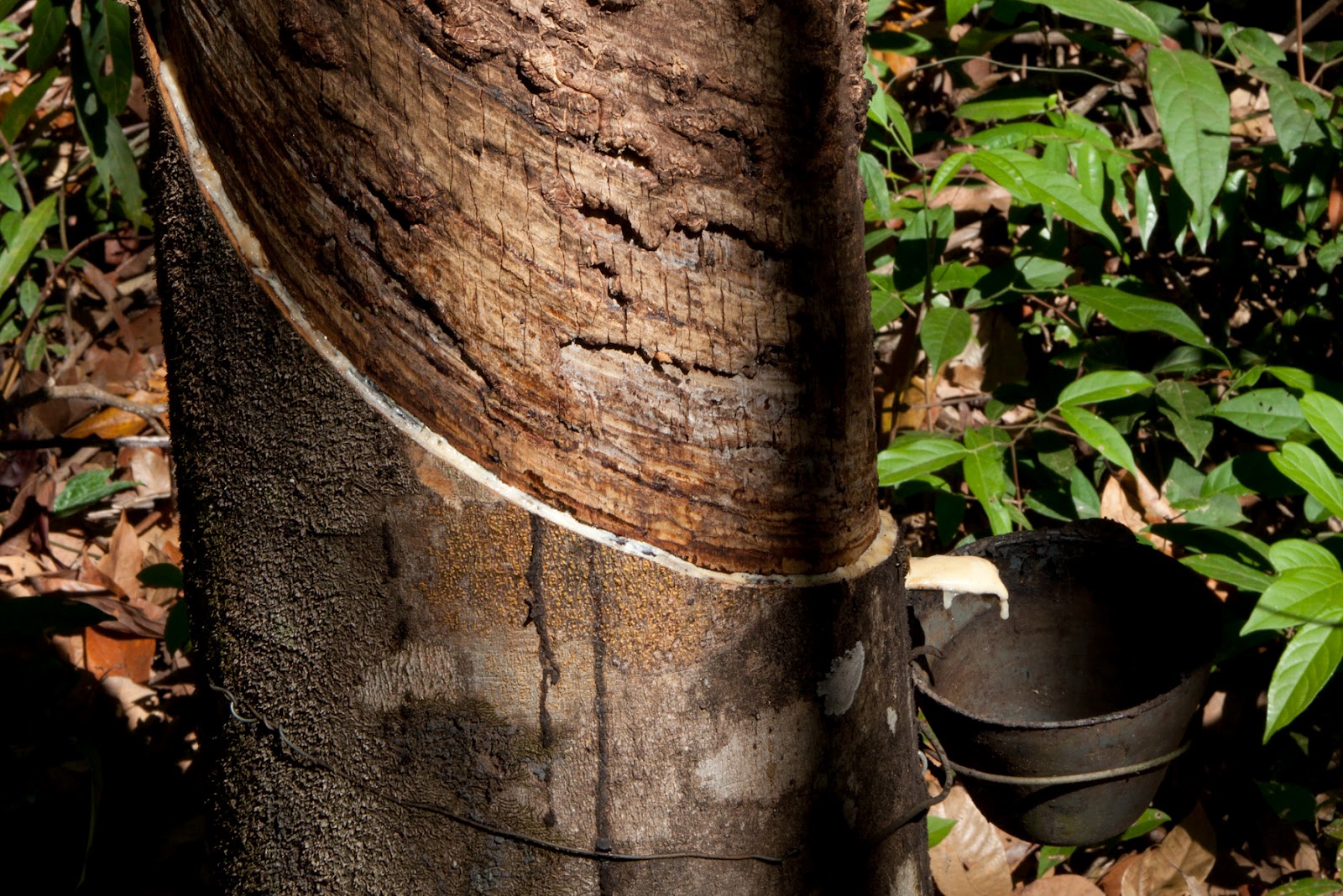The American Chalet
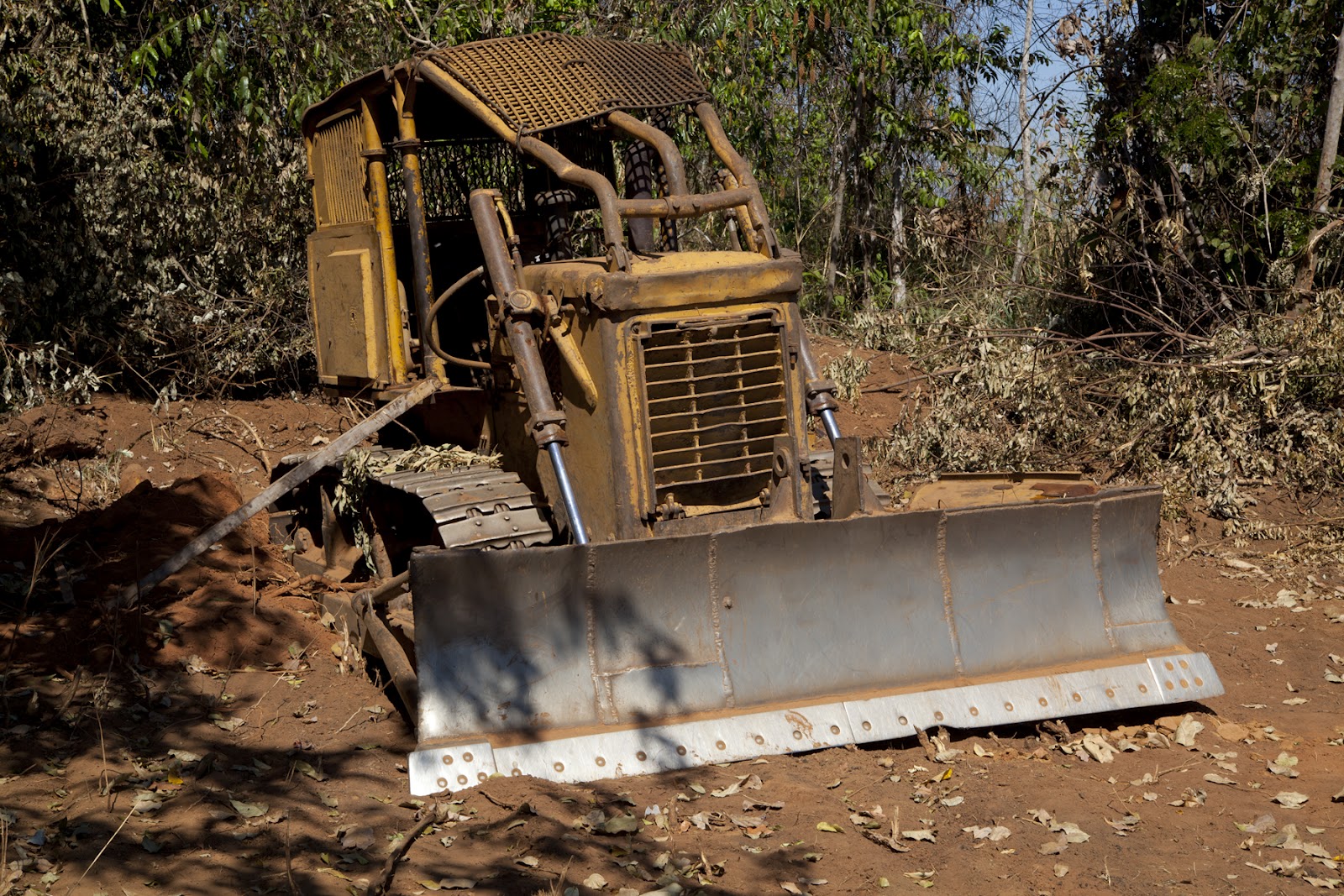
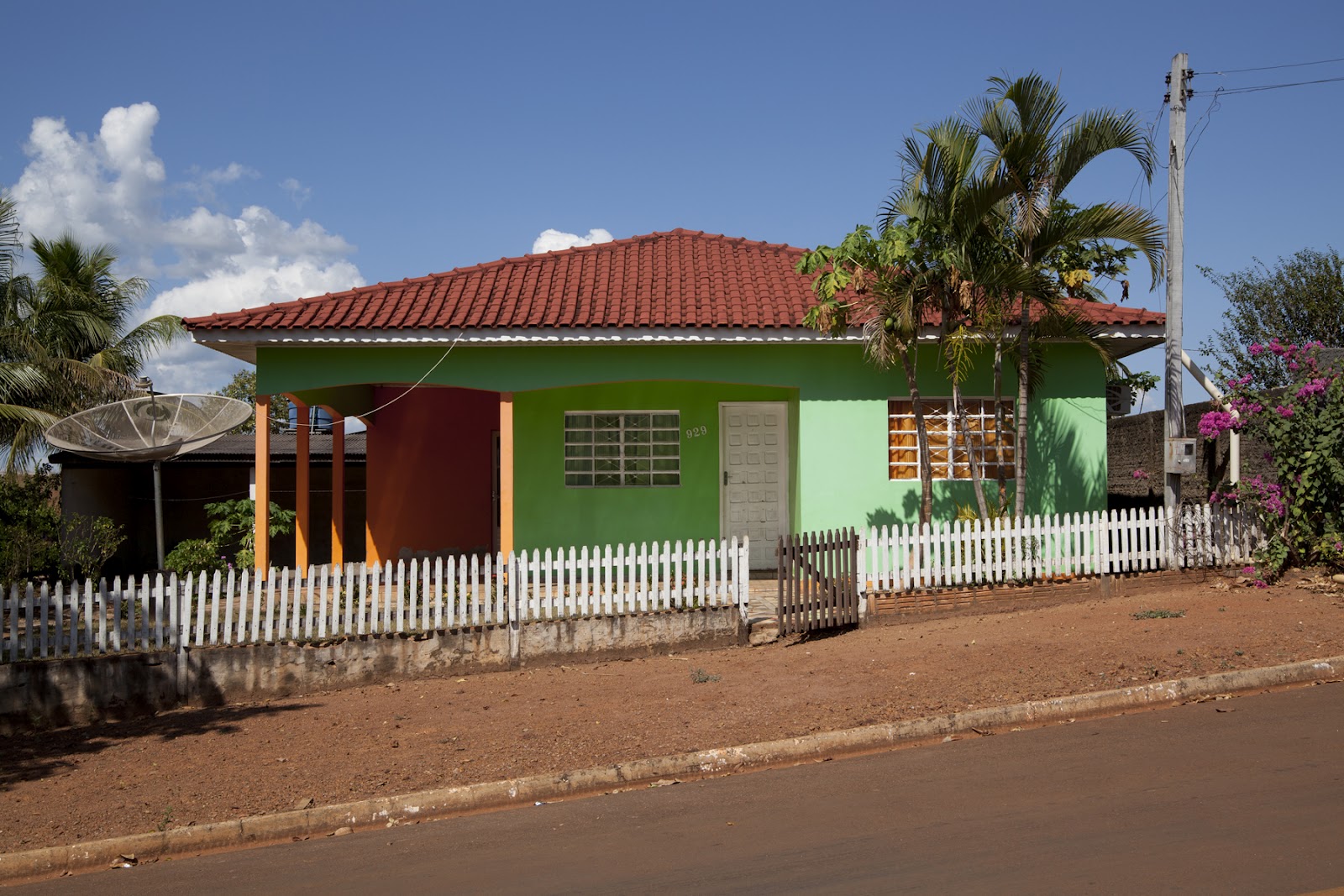
It was a bright sunny day in Itaúba. A group of technicians and engineers who seemed bored beyond consolation were staying at my hotel. The purpose of their visit was to measure the water levels of the Teles Pires River, crucial data needed to build a hydroelectric plant. They were smoking cigarettes waiting for their rides in the parking area in front of the hotel. The teenage brothers I hired as guides arrived early and waited for me in the car. Luiz and Victor did not look at all like brothers, except for the fact that they were both equally shy. They were polite, had no interest in photography and listened to local country music that sounded all the same. They would not volunteer information unless expressly asked and even then their answers were vague. It was only once I loaded the equipment and got into the car that they told me we could not drive to the municipality of Cláudia as planned. As it turns out there were vague legal issues with the vehicle that made driving on federal highways risky. Driving on provincial roads was fine.
The sudden change of my plan to get to the deforestation site required a new strategy. While I tried to come up with an alternative, I asked them to drive around town to some of the areas I had not yet seen.
Near a new neighborhood of small houses built by the government, we found an old bulldozer that was being used to clear a junkyard. I was surprised that the old machine still worked. Luiz said it was one of the first to arrive in town and that it belonged to the logging company of family friends. The company had miraculously survived after all the big ones escaped, continuing operations under different names in the north. Luiz told me that I could meet this friend and that indeed he wanted to speak with me. As we drove through the center of town, Victor stopped the car and introduced me to the man in question. His name was Cicero and he invited us to sit on the porch of his colorful house. He had moved to Matto Grosso in the late seventies along with a massive wave of colonization from Paraná, his native state. At first he spent a few years looking for gold without success. Afterward, he acquired a permit and started his modest logging business. It was not about logging or deforestation that Cicero wanted to speak. In fact, he was planning a trip to Miami and wanted advice on places to visit and the prices of things. I understood keenly how the teenagers felt when bombarded with questions that landed entirely outside their range of interests.
Woodstock Festival Aftermath, New York, 1969
Fordlandia, Brazil, 1927
Cicero's house was a scaled down version of the 50s middleclass American Chalet. American models of housing migrated to Brazil early in the century when John Ford started his rubber plantation in 1927. In an unusual display of protestant ethics unlike any other business conducted south of the equator, Ford constructed an American town designed entirely in the US, featuring a power plant, an infirmary, a hotel, a golf course, library, stores, restaurants and hundreds of clapboard houses with wicker patio furniture. Brazilians had collected rubber for decades, extracting it from existing trees in the forest. Ford's project failed drastically because the transplanted trees would not grow. Planted next to one another the trees were decimated by blight and insects. Years after, it was determined that to be healthy, rubber trees need to be surrounded by an ecosystem of native vegetation. Eventually the boom of rubber in Brazil perished when the British started exporting it from Asia at a cheaper price. Today, the trajectory of business in Amazonia goes from logging to agriculture and cattle. The results are degraded areas unable to sustain moisture or nutrients, acidic soil that catches fire during the dry season, eventually becoming a desert.
I told Cicero that I wanted to buy his house because it would make me feel the adventure of life was still happening, something I had not experienced since leaving Argentina in my early twenties. At age sixteen, I had a trio that played music by Jimi Hendrix. I never managed to play the American anthem the way he did in the epilogue to Woodstock, with debris from the concert spread far and wide. Sitting on this bright orange porch made me feel like I could give it another try. Cicero laughed at my proposal and said I could probably afford the house but would never endure living in Itaúba with "those ideas" of mine. I asked him if he would sell me his bulldozer so that I could bring it to America. He laughed out loud, not realizing this time that I was serious. I truly believe these machines should become relics, preserved next to military tanks, medieval armor, guns and bombs. We have the right to know what happens when our clumsy ideas are adopted in remote lands. It is our obligation to figure out what becomes of them.
